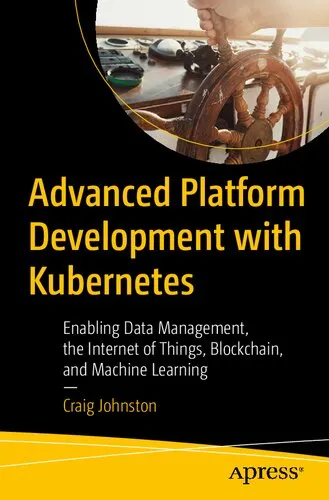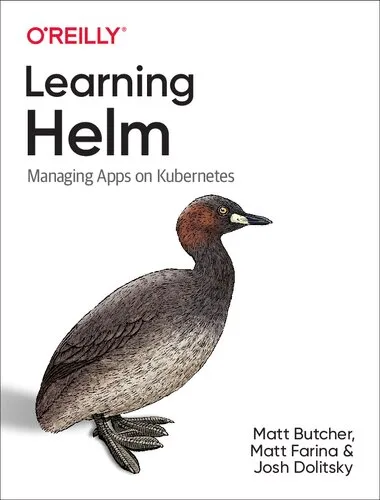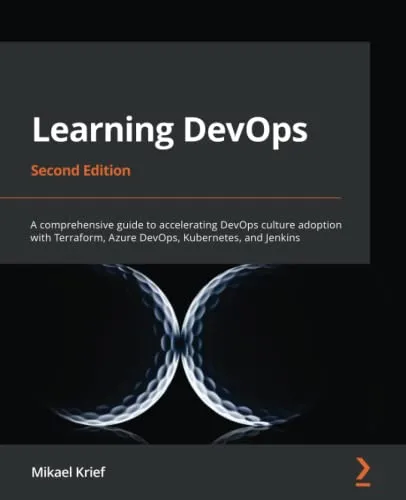Machine Learning on Kubernetes: A practical handbook for building and using a complete open source machine learning platform on Kubernetes
4.5
Reviews from our users

You Can Ask your questions from this book's AI after Login
Each download or ask from book AI costs 2 points. To earn more free points, please visit the Points Guide Page and complete some valuable actions.Related Refrences:
Introduction to "Machine Learning on Kubernetes"
The world of machine learning (ML) is evolving at a breathtaking pace, and with the proliferation of cloud-native technologies, Kubernetes has emerged as an indispensable tool for managing and scaling applications. "Machine Learning on Kubernetes: A Practical Handbook for Building and Using a Complete Open Source Machine Learning Platform on Kubernetes" serves as a comprehensive guide for practitioners, engineers, data scientists, and DevOps professionals. This book bridges the gap between the powerful capabilities of Kubernetes and the complex requirements of building modern machine learning platforms, enabling readers to make the most of open-source tools within a scalable, flexible, and cost-efficient ecosystem.
Detailed Summary of the Book
This book is written for anyone interested in integrating machine learning into Kubernetes environments, providing a hands-on approach to building a complete ML platform using open-source tools. The book begins by introducing Kubernetes as a platform, explaining its relevance and advantages in the ML domain. Readers are guided step by step, starting from foundational aspects like container orchestration and resource management, to advanced workloads like distributed training, hyperparameter tuning, and real-time inference at scale.
It meticulously discusses tools such as Kubeflow, Argo Workflows, TensorFlow Serving, and MLflow, ensuring you have access to the best technological stacks available in the open-source community. Moreover, this book delves into deploying ML workloads with minimal friction, scaling infrastructure, ensuring reproducibility, and enhancing collaboration across teams.
The book does not neglect production-grade concerns. Instead, it addresses critical aspects such as monitoring, logging, securing ML pipelines, and maintaining model integrity even as they are deployed into ever-changing production environments. It's a practical guide for both building new platforms and optimizing existing pipelines on Kubernetes.
Key Takeaways
- Learn how Kubernetes simplifies the deployment and scaling of machine learning models.
- Understand the integration of cutting-edge open-source tools like Kubeflow, TensorFlow, Argo Workflows, and more.
- Implement advanced features such as distributed training, model versioning, and hyperparameter tuning.
- Gain insights into leveraging containerized environments to make your ML experiments reproducible and portable.
- Discover strategies to monitor, secure, and manage your ML workflows in production environments.
- Master the cultural and workflow shifts needed to adopt DevOps and MLOps at scale on Kubernetes.
Famous Quotes from the Book
"Kubernetes provides the scaffolding for reliability and scalability, but it's the collaboration between data scientists and DevOps engineers that turns it into a true machine learning powerhouse."
"Building machine learning platforms is less about specific tools and more about nurturing an ecosystem where experimentation, deployment, and iteration become seamless."
"The open-source community has gifted us with tools that reduce complexity, but harnessing them effectively on Kubernetes requires understanding both the art and science of orchestration."
Why This Book Matters
As organizations increasingly adopt machine learning to drive decision-making and automation, the challenge remains: how can these ML workflows be operationalized at scale? The answer lies in Kubernetes, a powerful container orchestration platform that enables seamless deployment, scaling, and maintenance of applications in distributed environments. However, the intersection of Kubernetes and machine learning is complex, requiring a nuanced understanding of both ecosystems.
This book matters because it provides a complete resource for bridging this gap. It offers both the technical depth and practical guidance needed to succeed in the world of ML platforms. By blending modern tools, best practices, and real-world scenarios, the book empowers teams to transition from standalone ML models to robust, production-ready systems that deliver value at scale.
Whether you're a data scientist aiming to better understand infrastructure or a DevOps professional pursuing expertise in ML workloads, this book equips you with the tools, examples, and case studies to navigate today's challenges and position your organization for tomorrow's successes.
Free Direct Download
You Can Download this book after Login
Accessing books through legal platforms and public libraries not only supports the rights of authors and publishers but also contributes to the sustainability of reading culture. Before downloading, please take a moment to consider these options.
Find this book on other platforms:
WorldCat helps you find books in libraries worldwide.
See ratings, reviews, and discussions on Goodreads.
Find and buy rare or used books on AbeBooks.
1707
بازدید4.5
امتیاز0
نظر98%
رضایتReviews:
4.5
Based on 0 users review
Questions & Answers
Ask questions about this book or help others by answering
No questions yet. Be the first to ask!
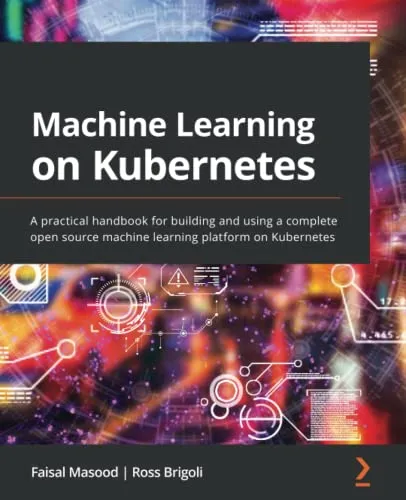
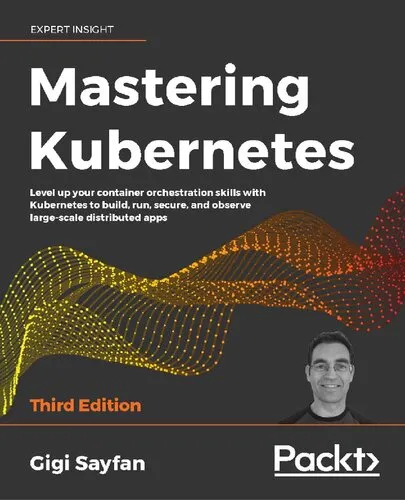
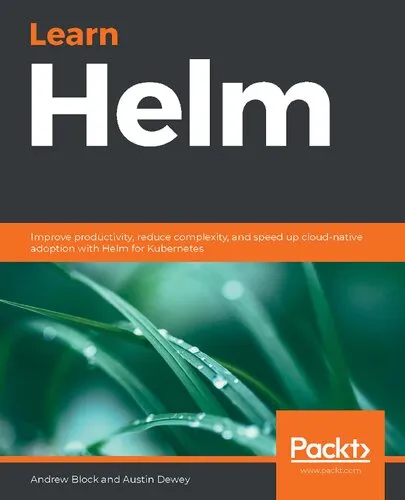
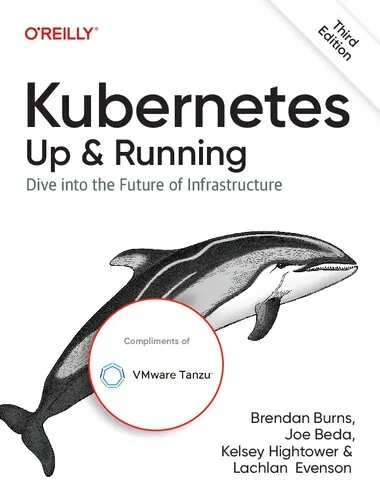
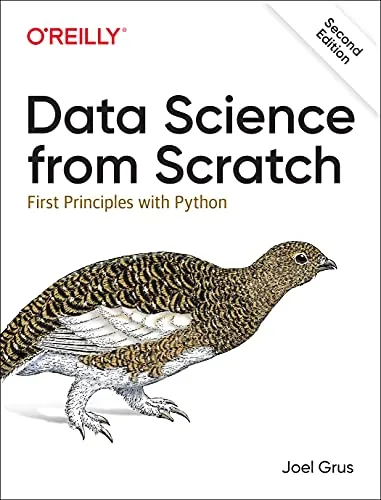
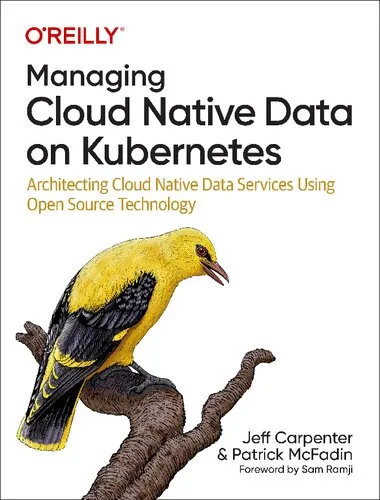
![Building Data Science Applications with FastAPI: Develop, manage, and deploy efficient machine learning applications with Python [Team-IRA]](https://s3.refhub.ir/images/thumb/Building_Data_Science_Applications_with_FastA_31328.webp)



